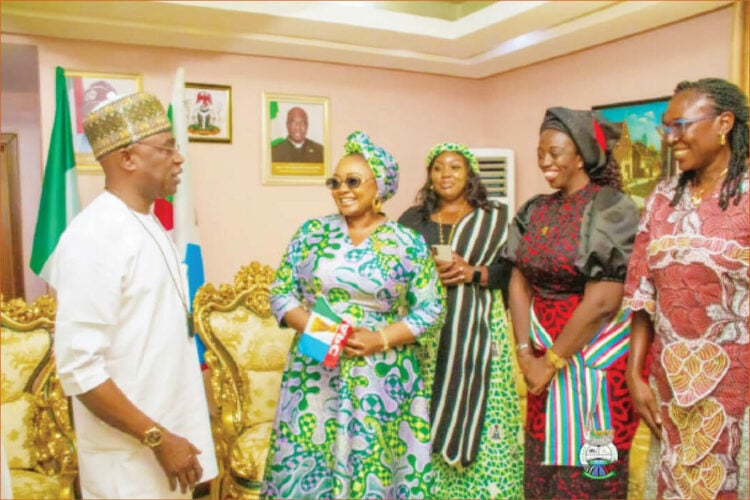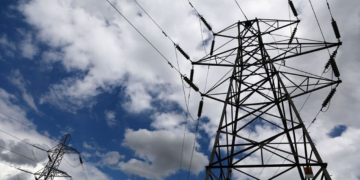Surviving as a widow in most circumstances is always a huge challenge, especially for those who not only lost their loved ones in harrowing attacks that left them without their husbands and other loved ones, and in most cases, found themselves uprooted from their homes and communities, forcing them out as refugees.
There are also those who have to contend with Sexual and Gender-Based violence as survivors of conflicts and as women and girls in communities not affected any way by violent conflict. Such victims face multifaceted challenges, including cultural stigmatization, economic vulnerability, and limited access to justice and support systems.
While cultural practices, such as harmful widowhood rites and the blaming of survivors, contribute to their suffering, there are often institutional limitations for effective care and support to those who find themselves in such circumstances.
In Benue State where conflicts have forced communities out of their homes, widows and SGBV survivors are also faced with such challenges. Therefore, when an opportunity comes to assuage their condition, it becomes more like a celebration of a new life, a ray of hope for a better future.
The Renewed Hope Agenda recently offered such hope to scores of widows and SGBV survivors in Benue State. The intervention will empower them economically, thus enabling them access to safe spaces and even the opportunity to get their dependants back to school.
Even before this intervention, efforts are being made by the Benue State Government to improve the situation, such as establishing a GBV hub, intensified awareness campaigns, and other better support services.
The launch of the Federal Government Renewed Hope Social Impact Intervention Programme in Benue State, targeting widows and survivors of Sexual and Gender-Based Violence (SGBV), is therefore a huge relief for the beneficiaries.
The programme was launched by the Minister of Women Affairs and Social Development, Hajiya Imaan Suleiman-Ibrahim, who reaffirmed the Federal Government’s commitment to empowering women, widows, and SGBV survivors. She emphasized the need for unity, peace, and stronger family values, stressing that women must serve as agents of prosperity and political leaders rather than “cheerleaders.”
She spoke on the low level of women’s representation in governance, which currently stands at 3.7 per cent, assuring that the Renewed Hope Social Impact Programme domiciled in all 774 local governments would change the negative narrative.
The minister regretted that 26 years after the current republic, women still face systematic barriers in the country.
“About 26 years after this present republic, women still face political challenges in Nigeria. The representation is still very low. We are going to rise above our political challenges.
“Economically, we still face challenges too; women cannot own land in some communities, even with their hard work.
“Today in Nigeria, we have more female-headed households than male-headed households,” she said.
Unveiling the empowerment packages for the widows and SGBV survivors, the minister said through the Women in Agro-Value Enterprise (WAVE) programme, 20 women farmers will be empowered with one million naira each, starting with N500,000 immediate disbursement and the balance after six months. There is also a provision for 100 small-scale women traders who will receive N50,000 each to expand their businesses.
Similarly, through the ministry’s collaboration with the Nigeria Customs Service, a total of 400 bags of rice, 200 wrappers, 10 bales of clothes, four grinding machines, and four sewing machines went to the beneficiaries. There is also a plan to establish the Women Economic Village in Makurdi to showcase women’s entrepreneurial capacity and strengthen their role in economic growth.
These interventions will no doubt complement the efforts of the administration of Governor Hyacinth Iormem Alia of supporting women in distress.
The state Deputy Governor, Sir Sam Ode, said at the event that the Alia administration has also deliberately promoted gender inclusion, with women occupying over 70 percent of key positions in the state, including the Secretary to the State Government.
As a demonstration of the commitment to the cause of women, Governor Alia approved 500 hectares of land requested by the Minister for agricultural initiatives under the Renewed Hope Agenda, which will be provided across all parts of the state without bias.
The governor directed wives of local government chairmen to mobilize rural women for federal and state interventions, just as he praised President Bola Tinubu and the First Lady, Senator Oluremi Tinubu, for their unwavering support to Nigerian women, urging Benue women to reciprocate by supporting the present administration.
For Benue State Commissioner for Women Affairs and Social Welfare, Hon. Theresa Odachi Ikwe, the intervention was a demonstration of the commitment of a leadership that is people-centered.
“True leadership is not defined by titles but by the lives we touch and the hope we restore,” she aptly concluded.
This event, no doubt, highlighted government’s resolve and tireless efforts in advancing women’s welfare, helping them to heal and establish themselves into the economic space to better their lives and contribute more meaningfully to societal growth and development, thereby making them to regain their lost dignity.
Bridget Tikyaa Is the Principal Special Assistant to the Governor on Media Publicity and Communication Strategy











